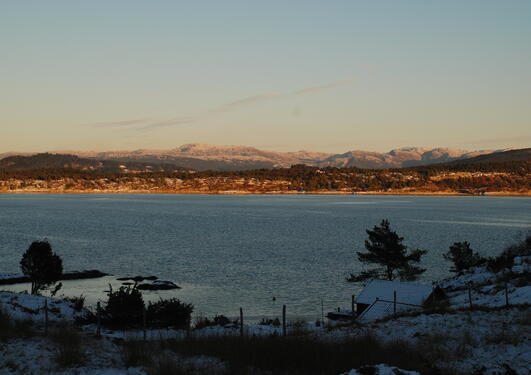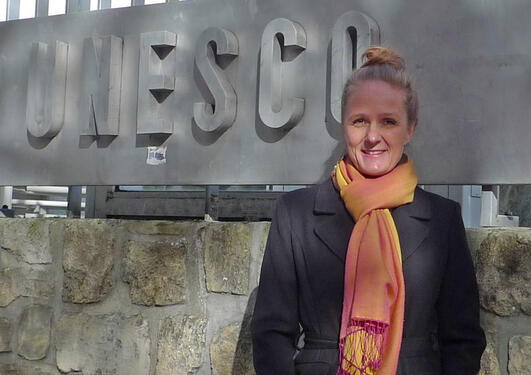Peder Sather project to look at sustainability of Norwegian and Californian farms
A collaboration between University of California Berkeley and the University of Bergen.

Hovedinnhold
Agricultural and Food Systems Sustainability in California and Norway at Farmer and Landscape Scales - A Comparative Analysis
In the face of current sustainable development challenges (e.g., UN’s Agenda 2030), increased knowledge of our agriculture and food systems is of utmost importance. The global North – including the US and Norway – use a disproportionately large proportion of unsustainable inputs to the food system.
On the positive side, both California and Western Norway are known centers of agricultural technological and institutional innovation to support sustainable landscapes and food systems, each with different strengths and vulnerabilities. This project will identify and analyze relevant farm and landscape scale innovations in California to share with Norwegian stakeholders engaged in strategic rethinking of their agriculture and food supply future.
Likewise, California farmers and rural institutions will learn the Norwegian "social contract" model of government support for multifunctional agriculture. The project will be linked with TRADMOD, a Norway Research Council initiative, enabling knowledge-sharing through the Nordhordland Biosphere stakeholder platform.
The wide concept of socio-ecological systems (SES) departs from the recognition that human socio-economic behaviors profoundly impact and shape the biosphere and human welfare is inextricably linked with the capacity of the biosphere to sustain us (Folke et al 2016, 2010).
The existential challenge of humanity, therefore, "is to understand its new role as a dominant force in the operation of the biosphere and how it shapes the broader Earth system and to transform actions, technologies, and developments to fit the new reality of the Anthropocene." (Folke et al 2016). It follows that sustainable development must be regenerative and at no or little cost to future generations, "enabled within the means of nature".
The project will run from July 2018 to July 2019.
Expected outcomes
- This UCB–UiB collaboration will strengthen the outreach and results of the Norwegian Research Council funded TRADMOD project through knowledge-sharing on sustainable farm and landscape management in California, increasing the innovation possibilities for Norway to consider in ‘greening its future’.
- California-based sustainable farmers and support organizations at landscape level will expand their range of knowledge and sustainability options through interaction with Norwegian researchers and multifunctional agriculture innovators.
- UCB–UiB will continue and strengthen their research and development collaboration in the fields of socio-economic resilience and agriculture and food systems sustainability.
- Publication of results in international peer-reviewed journals.


